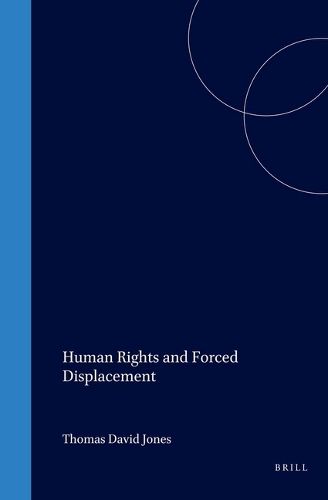Readings Newsletter
Become a Readings Member to make your shopping experience even easier.
Sign in or sign up for free!
You’re not far away from qualifying for FREE standard shipping within Australia
You’ve qualified for FREE standard shipping within Australia
The cart is loading…






A comprehensive approach to the problem of forced displacement involves understanding and addressing human rights issues in a multiplicity of forms. This collection aims to contribute to the institutional capacities of the many different players to operationalize the human rights of refugees and the internally displaced, by conceptualizing the emerging issues and priorities, and advancing policy thinking on human rights and forced displacement. Each of the sections of the book approaches this issue from a different perspective. The section on standards asks questions such as: What international human rights standards apply to the forcibly displaced? How do they apply? Have there been failures? Are there gaps in the international standards? The section on monitoring reporting asks: Who monitors human rights violations? Who reports the findings, and to whom? The final section looks to the future, and considers where asylum fits into the spectrum of solving the nature of forced displacement, the capacities and limitations of international criminal tribunals and the co-operative arrangements and divisions of labour that need to be fashioned.
$9.00 standard shipping within Australia
FREE standard shipping within Australia for orders over $100.00
Express & International shipping calculated at checkout
A comprehensive approach to the problem of forced displacement involves understanding and addressing human rights issues in a multiplicity of forms. This collection aims to contribute to the institutional capacities of the many different players to operationalize the human rights of refugees and the internally displaced, by conceptualizing the emerging issues and priorities, and advancing policy thinking on human rights and forced displacement. Each of the sections of the book approaches this issue from a different perspective. The section on standards asks questions such as: What international human rights standards apply to the forcibly displaced? How do they apply? Have there been failures? Are there gaps in the international standards? The section on monitoring reporting asks: Who monitors human rights violations? Who reports the findings, and to whom? The final section looks to the future, and considers where asylum fits into the spectrum of solving the nature of forced displacement, the capacities and limitations of international criminal tribunals and the co-operative arrangements and divisions of labour that need to be fashioned.